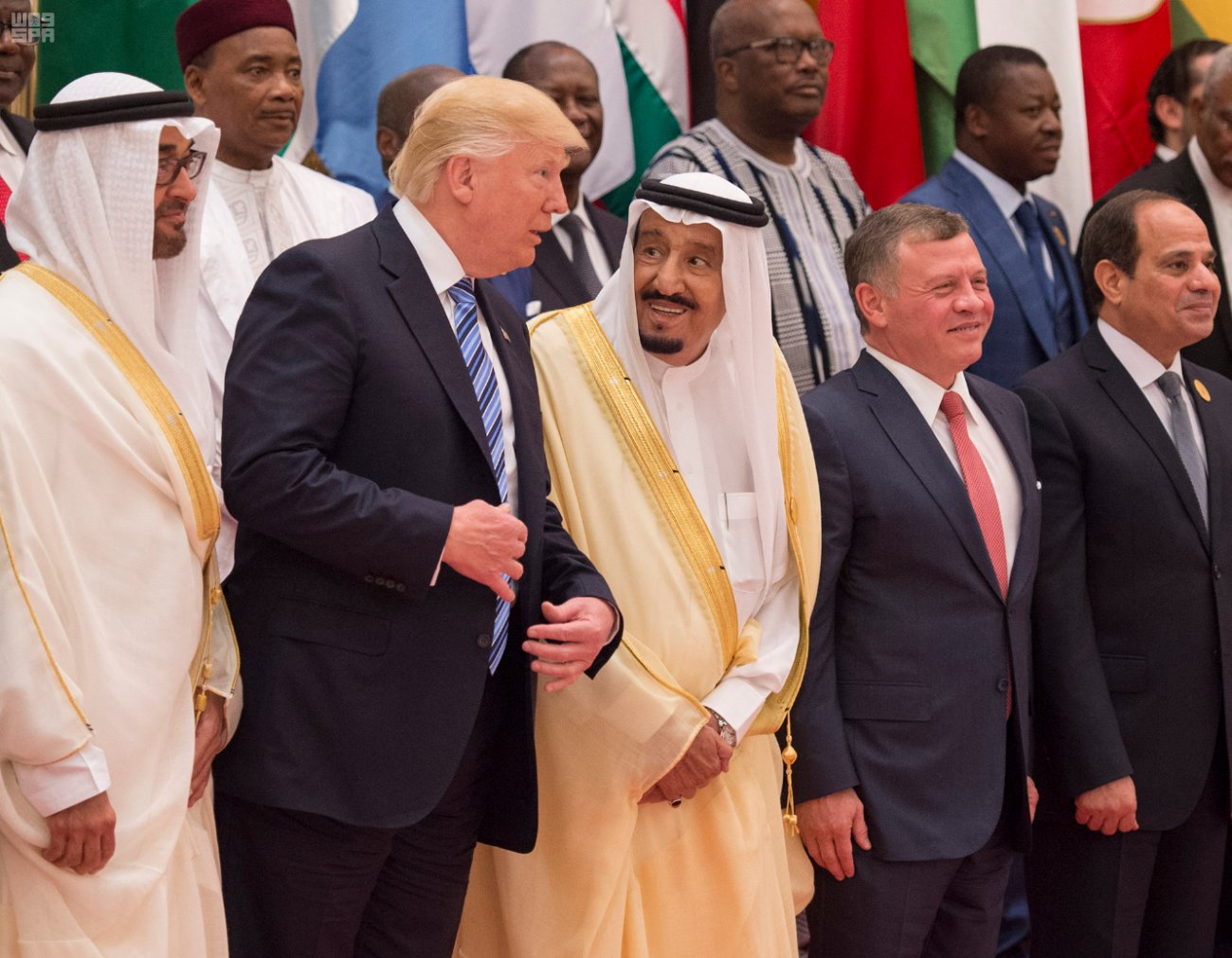At a summit in Beirut in March 2002, then-Saudi Crown Prince Abdullah unveiled an initiative to achieve peace between Israelis and Palestianians. The Arab Peace Initiative set out a comprehensive proposal calling for full Israeli withdrawal from all the Arab territories occupied since June 1967, Israel’s acceptance of an independent Palestinian state with East Jerusalem as its capital, and in return Israel would receive the establishment of normal relations with its Arab neighbors.
The proposal, which was endorsed again by the Arab League in 2007 and 2017, has not gained full acceptance in Israel. But a changing dynamic in the Middle East region, one where more pressing challenges in Syria, Yemen, Iraq, and with the rise of extremism and the self-described Islamic State have placed Gulf states and Israel on the same side of many issues.
Writing in The Guardian, Ian Black notes that a new opportunity exists for a peace deal between Israel and Palestine if President Trump and his administration seek to pursue it, but only the opportunity is new. The framework of an agreement may be close to that which was proposed by then Crown Prince Abdullah in 2002.
“If Donald Trump is going to pursue “the ultimate deal” between Israelis and Palestinians after his brief visits to Saudi Arabia, Israel and the occupied West Bank, the effort looks likely to be based on a 15-year-old peace plan that was barely noticed at the time, has been gathering dust ever since, but remains a rare green shoot in the arid landscape of Middle Eastern diplomacy,” Black writes.
“But talk of the API has increased recently…at least in Washington….Now the Saudis and their allies are reportedly offering incentives – dangling the prospect of access for Israeli companies, direct communications and over-flight rights in exchange for freezing West Bank settlements and easing the blockade on the Gaza Strip, controlled by Hamas. The ideas were outlined in a paper shared among Gulf countries, according to the Wall Street Journal,” according to Black, who is the Guardian’s Middle East editor.
Finding a lasting solution to the conflict in that region has frustrated several U.S. presidents. President Obama tapped former Maine Senator George Mitchell Jr. to serve as envoy for Middle East peace from 2009 to 2011 to broker peace between the two sides, but was ultimately unsuccessful. President Clinton hosted a summit attended by Israeli prime minister Ehud Barak and Palestinian Authority chairman Yasser Arafat, but no lasting agreement was reached.
The administration official under President Trump that is in charge of the Israeli-Palestinian conflict is his son-in-law and top advisor, Jared Kushner, who is a practicing Modern Orthodox Jew and registered Democrat. But so far, according to a Reuters analysis, if Kushner has a plan to solve the conflict, he isn’t revealing many details.
“If Jared Kushner has a plan to solve the Arab-Israeli conflict, so far he’s giving little away. In the four months since President Donald Trump took office and gave his 36-year-old son-in-law the job of forging peace between Israel and the Palestinians, Kushner has kept his plans under wraps for a conflict that is nearly twice as old as he is,” Reuters writes, noting that he has delegated much of the day-to-day operations on the conflict to Jason Greenblatt, a Jewish real-estate lawyer and long-term Trump loyalist.









